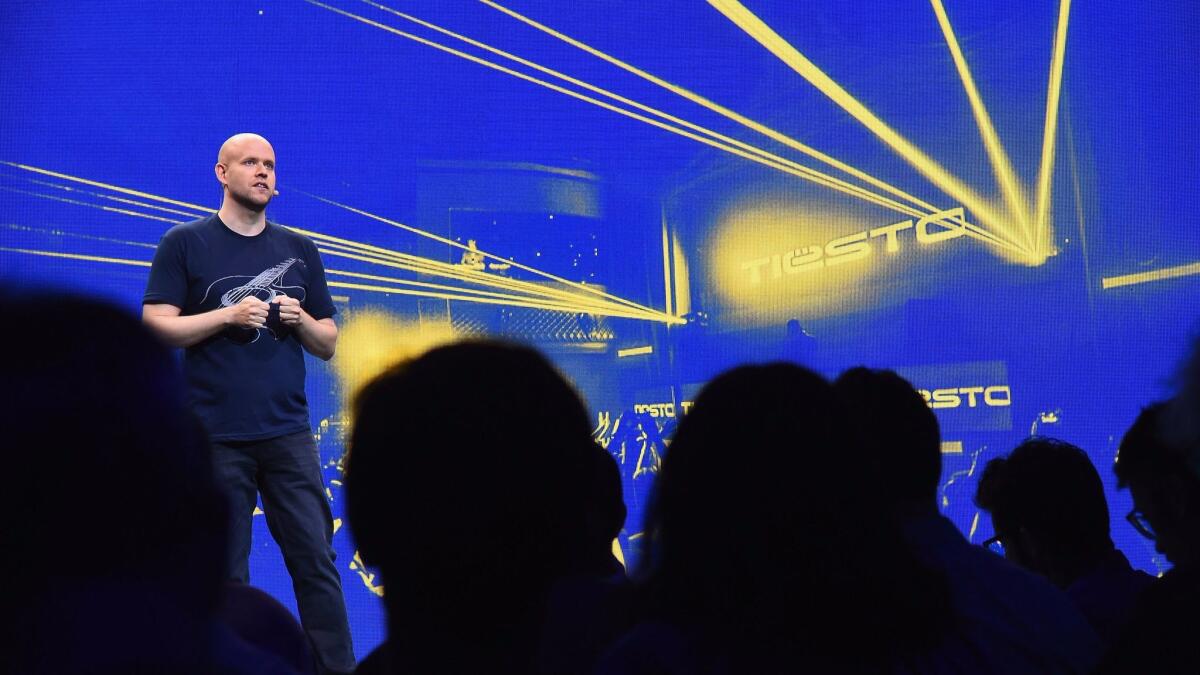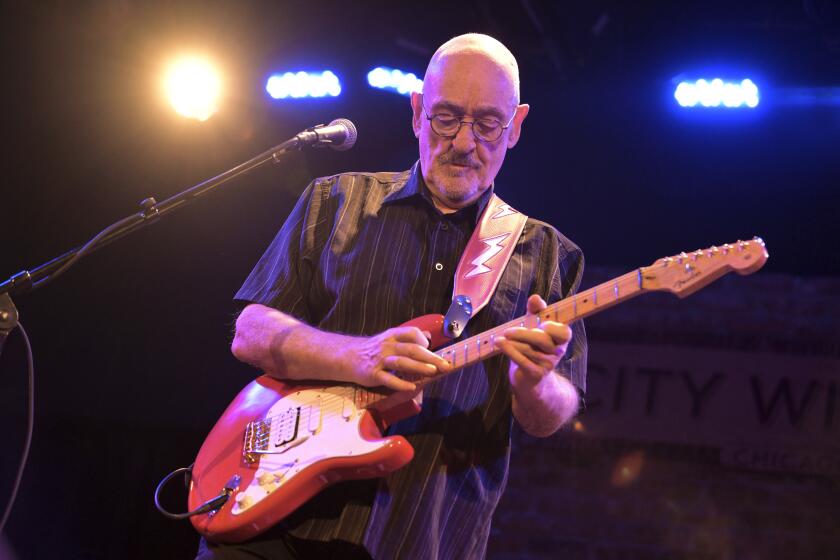In a major shift, Spotify will place select new Universal releases behind a paywall

In a major shift to its business model, the world’s largest streaming service, Spotify, will begin placing select new releases from Universal Music Group behind a paywall.
Under a global licensing deal, Universal artists can opt to make their new albums available on Spotify’s paid service for two weeks after release. Spotify also would be able to reduce its royalty payments to the label once certain revenue targets are reached.
The pact clears a path for Spotify’s long-anticipated IPO and underscores how rapidly streaming is changing the music business.
“We know that not every album by every artist should be released the same way, and we’ve worked hard with UMG to develop a new, flexible release policy,” Spotify Chief Executive Daniel Ek said in a statement. “Starting today, Universal artists can choose to release new albums on premium only for two weeks.”
The agreement affects many of the world’s most successful acts. As the largest record company in the world, Universal Music Group owns labels including Capitol (the Beatles, Katy Perry, Sam Smith, Migos, Porter Robinson); Interscope-Geffen-A&M (Kendrick Lamar, Lana Del Rey, Lady Gaga, Rae Sremmurd); Def Jam (Justin Bieber, Kanye West, Nas, YG); Universal Group Nashville (Chris Stapleton, Carrie Underwood, Eric Church, Kacey Musgraves); and dozens of other imprints including classical powerhouse Deutsche Grammophon, and pop labels Island and Republic.
Speculation on the shift has been building for months. Since its inception, the Sweden-based company has relied on a multitiered “freemium” model. Unlike users of competitors Apple Music and Tidal, Spotify’s base could listen to its entire catalog of music for free, but to do so had to endure advertisements. For $9.99 a month, users had commercial-free access to Spotify’s full catalog.
In March, Spotify announced that it had surpassed 50 million premium users worldwide. In 2016, it reported 100 million total active users. By comparison, Apple Music said in Dec. 2016 that it had surpassed 20 million subscribers.
In Tuesday’s announcement, Lucian Grainge, chairman and CEO of Universal Music Group, expressed enthusiasm for the agreement while recalling the company’s history with Spotify. In the beginning, he said, his company embraced partners like Spotify: “Working hand in hand with these digital services brought us the industry’s first real growth in nearly two decades.”
In March, the Recording Industry Assn. of America announced that estimated 2016 retail revenues from recorded music in the United States grew 11.4% to $7.7 billion.
Grainge added that streaming now represents the majority of the business, and thus “requires creative and continual reevaluation of how best to bring artists’ music to fans … The only constants must be great music and fair compensation for artists and creators.”
According to a report in the Financial Times, Spotify has been “in tough talks for months with the big three labels,” which also includes Sony Music Entertainment and Warner Music Group. All three own financial stakes in Spotify.
Tuesday’s announcement could have real-world consequences for Kendrick Lamar fans. The Compton rapper has teased the possible release of new music on Friday, and since his work for Top Dawg Entertainment is distributed through the Universal Music Group, it might be one of the first major releases affected.
For tips, records, snapshots and stories on Los Angeles music culture, follow Randall Roberts on Twitter and Instagram: @liledit. Email: randall.roberts@latimes.com.
UPDATES:
7:36 p.m.: This article was updated with new details about the licensing deal.
This article was originally published at 11: 30 a.m.
More to Read
The biggest entertainment stories
Get our big stories about Hollywood, film, television, music, arts, culture and more right in your inbox as soon as they publish.
You may occasionally receive promotional content from the Los Angeles Times.











